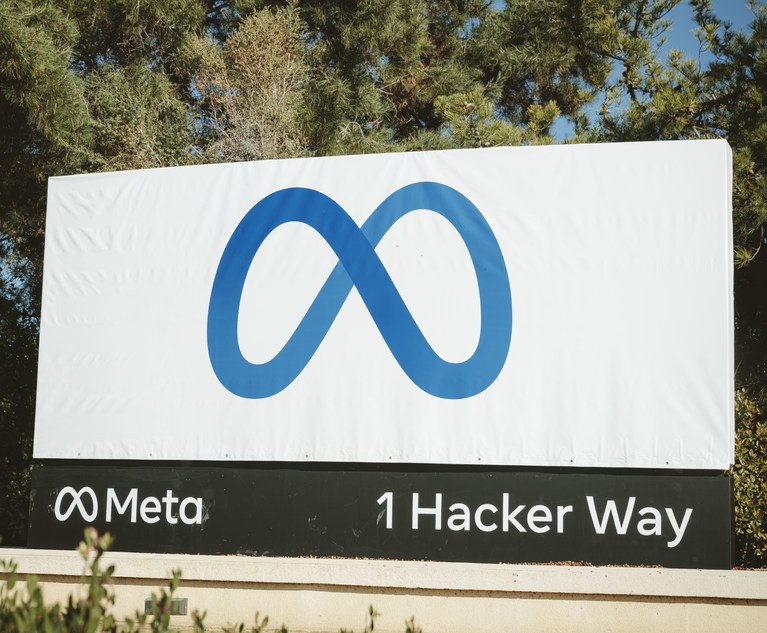Meta Lawyers Question Role of State Attorneys General in Federal Antitrust Enforcement
Lawyers at Kellogg Hansen Todd Figel & Frederick argued that state attorneys general are not “sovereign enforcers of federal antitrust law” and are essentially no different than private plaintiffs in antitrust suits.

Lawyers for Facebook parent company Meta are seeking to minimize the role of state attorneys general in enforcing federal antitrust laws as part of a dispute before the U.S. Court of Appeals for the D.C. Circuit.
In a brief filed late Monday, the company’s lawyers at Kellogg Hansen Todd Figel & Frederick argued that state attorneys general are not “sovereign enforcers of federal antitrust law” and, unlike the federal government, have a limited window to bring claims alleging harm to competition.
Meta is seeking to prevent a coalition of attorneys general representing 46 states, the District of Columbia and Guam from reviving a lawsuit alleging that Facebook maintains a monopoly in the personal social networking market. The suit alleged that Facebook bought up emerging rivals Instagram and WhatsApp to squelch competition and prevented third-party apps that posed a potential threat to its business from working with its platforms.
U.S. District Judge James Boasberg last year granted Facebook’s motion to dismiss the case, finding the states waited too long to bring challenges to the company’s acquisitions of Instagram and WhatsApp, which closed in 2012 and 2014, respectively.
Boasberg found their claims are barred by the doctrine of laches, which prevents plaintiffs from obtaining relief if they unreasonably delay in vindicating their rights.
The dispute highlights the increasing role that state attorneys general play in partnering with federal agencies in antitrust investigations and litigation. In the Facebook case, the states worked closely with the Federal Trade Commission, whose own lawsuit against Meta has been allowed to move forward after the commission filed an amended complaint.
In contesting the states’ attempt to revive their lawsuit, Kellogg Hansen attorneys argued that state attorneys general are essentially no different than any other private plaintiff in bringing claims under federal antitrust laws. That argument, which doomed the states’ case in district court, would subject states to a four-year statute of limitations.
“A federal antitrust enforcer always has standing to prosecute a legal violation,” Meta’s brief read. “By contrast, a state—which has no sovereign interest in the enforcement of federal law—must separately establish its right to pursue an action.”
The state attorneys general disputed Meta’s characterization of their role in antitrust enforcement.
“Laches does not apply against sovereign states suing to protect the public interest, like the states here,” the states’ brief, which was filed in January, stated. “And even if laches could apply against the states, the district court misapplied the doctrine by failing to afford adequate deference to the states’ critical role in protecting the public interest through antitrust enforcement actions like this one.”
Boasberg’s ruling “reflected an extraordinary, insupportably narrow view of the scope of the federal antitrust laws,” the states contended.
The U.S. Justice Department, which has partnered with state attorneys general on several major antitrust actions, including the ongoing monopoly case against Google, also weighed in. In an amicus brief backing the states’ case, DOJ called federal-state partnerships “essential to vigorous and effective antitrust enforcement.”


